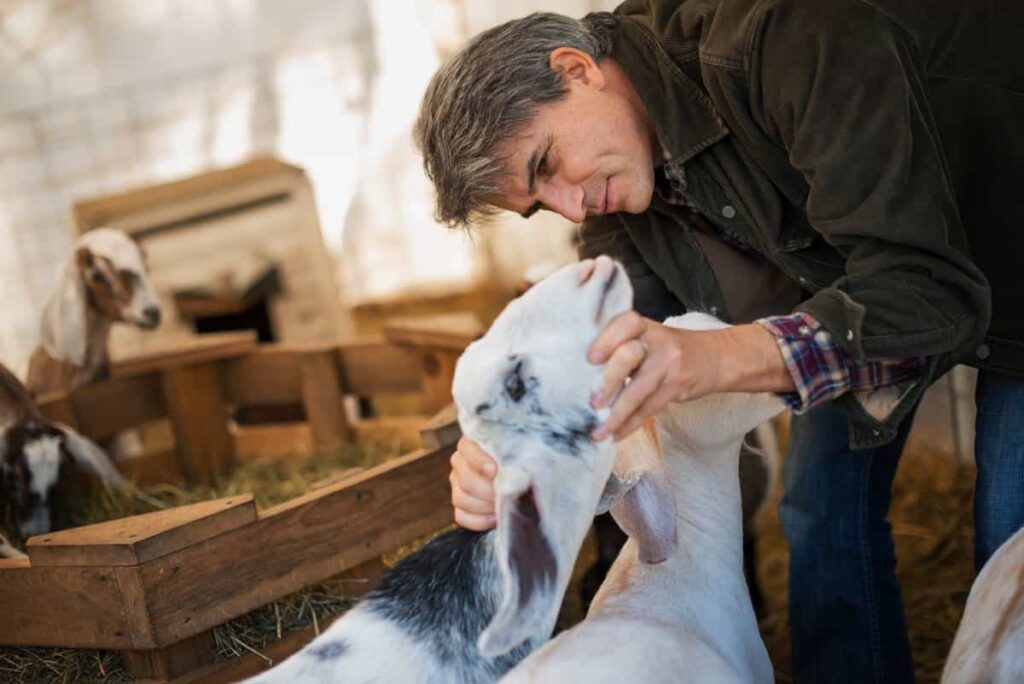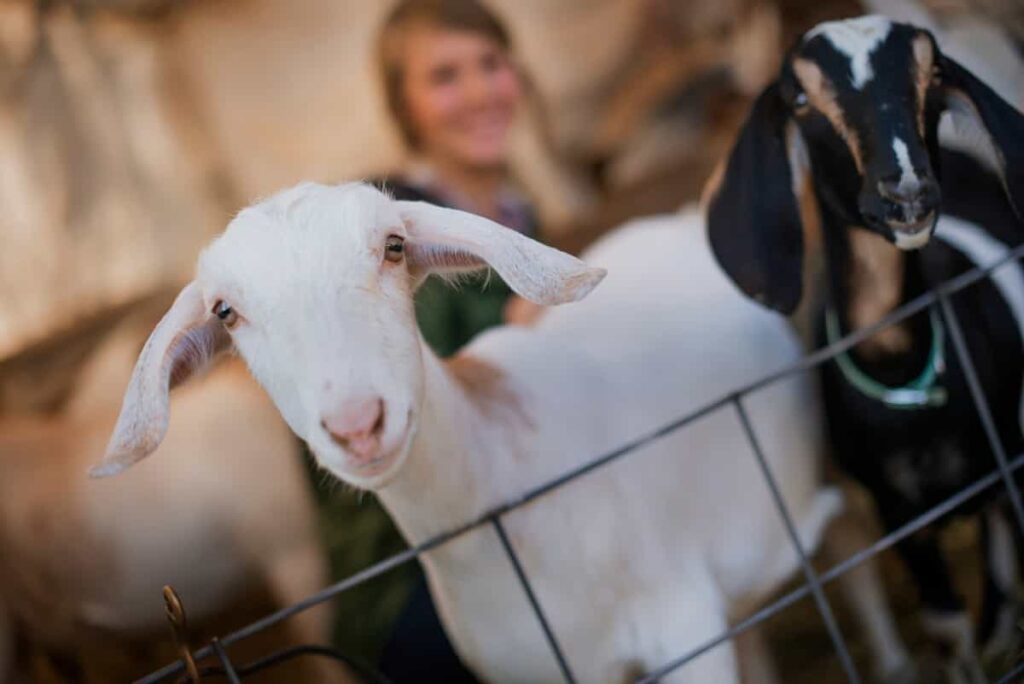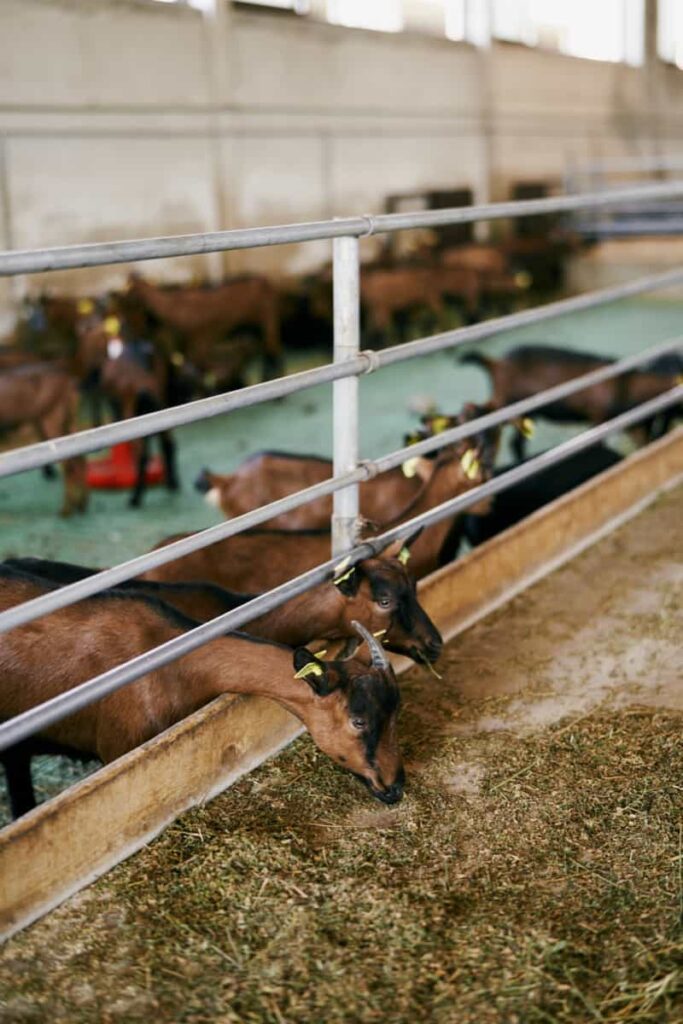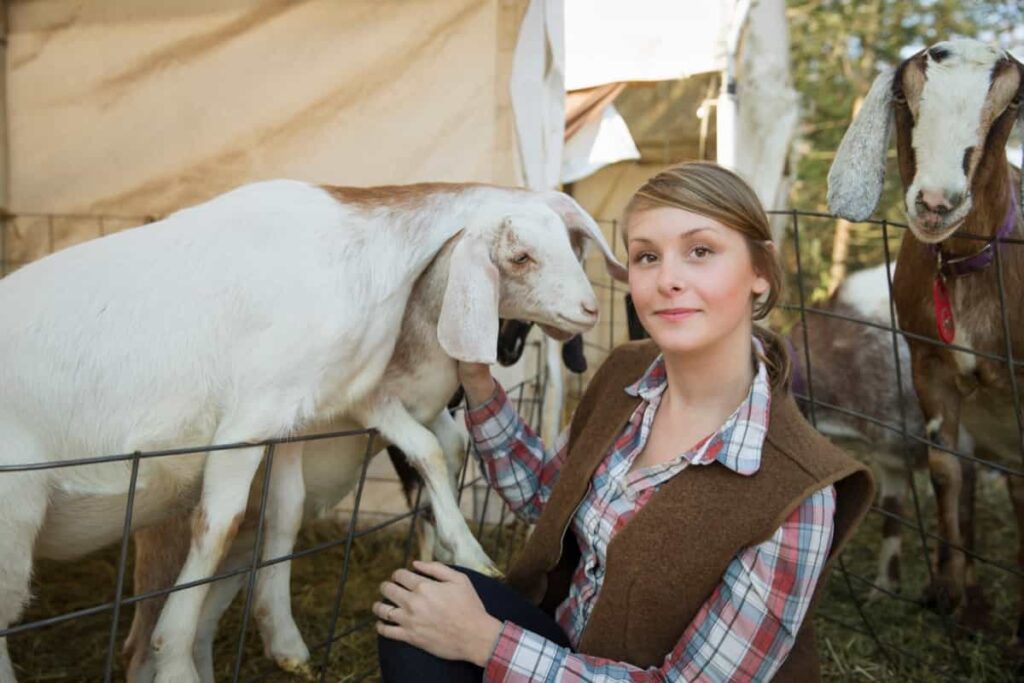Goat farming is the practice of rearing and breeding goats for various purposes. These versatile animals have been domesticated for centuries and are valued for their meat, milk, fiber, and even as pets. In Brazil, goat farming has gained significant importance due to several factors. Goats are resilient animals that adapt well to different climates and terrains in Brazil.

Understanding the Goat Farming Industry in Brazil
Brazil is known for its thriving agricultural sector; within that, goat farming has emerged as a promising industry. With its vast land resources and favorable climatic conditions, Brazil provides an ideal environment for goat rearing. The demand for goat products such as meat, milk, cheese, and skin has steadily increased domestically and internationally. This presents a lucrative opportunity for aspiring entrepreneurs to venture into the goat farming business in Brazil.
10 Steps to Start Goat Farming in Brazil
Acquiring Suitable Land and Infrastructure for Goat Farming in Brazil
The success of your goat farm largely depends on having the right location and facilities to cater to the needs of your goats. It would help if you found a land with enough space for your goats to graze and roam freely. Goats require ample grazing areas as they are natural foragers. Look for land with good vegetation and access to fresh water sources. Next, consider the infrastructure needed for housing your goats. Additionally, ensure proper fencing around the farm’s perimeter to prevent any unauthorized entry or potential threats from predators.
Developing a Comprehensive Business Plan for Goat Farming in Brazil
A business plan will serve as your roadmap, guiding you through the various aspects of your goat farming business and helping you make informed decisions. A comprehensive business plan not only enables you to map out your goals and strategies but also provides valuable insights into the financial viability of your goat farming enterprise. It’s essential to outline your goals and objectives for the farm.
Next, conduct thorough market research to understand consumer demand, competition, pricing trends, and distribution channels. Identify potential buyers through online platforms, such as local markets and restaurants. Don’t forget about managing potential risks such as diseases and predators. Incorporate preventative measures into your business plan by implementing proper biosecurity protocols and investing in veterinary care.
Best Breeds to Start Goat Farming in Brazil
The local Brazilian goat breeds can be categorized into six main groups: Moxotó, Canindé, Repartida, Marota, Graúna, and Azul. These breeds have adapted well to the Brazilian climate and terrain over generations. Additionally, a non-descript group derived from crosses also thrives in the country.
In case you missed it: 10 Steps to Start Goat Farming in Iran: Breeds, Business Plan, License, Cost, and Profit

Establishing a Goat Breeding Program in Brazil
You need to select the right breed for your farm. Various local goat breeds in Brazil have adapted well to the country’s climate and conditions. Once you have chosen the suitable breed, focusing on genetics and breeding techniques is essential. This involves selecting high-quality breeding stock with desirable traits like milk production or meat quality.
Regular health checks by veterinarians should be part of your routine. Vaccinations are provided at appropriate intervals based on veterinary recommendations. Establishing a goat breeding program requires careful planning, attention to detail, and dedication.
Feeding and Nutrition Practices for Goats in Brazil
As goats are ruminants, their digestive system is designed to process roughage and forage efficiently. In Brazil, goats’ most common feed sources include grasses, legumes, browse plants, and crop residues. It is providing them with a balanced diet that meets their nutritional requirements. This contains adequate protein, carbohydrates, vitamins, minerals, and water. It’s essential to consult with a veterinarian or an animal nutritionist to design a suitable feeding program based on your specific herd’s needs.
Securing the Necessary Licenses and Permits for Goat Farming in Brazil
You will need to register your farm with the appropriate government agencies. This typically involves providing details about your business, such as its name, address, and purpose. Next, you must obtain a local agricultural department or veterinary office license. To begin, you must register your farm with the appropriate government agencies. The Ministry of Agriculture, Livestock, and Food Supply (MAPA) oversees livestock production in Brazil. You must comply with their animal health regulations, breeding programs, feed quality control, and waste management.
In addition to registering with MAPA, you may also need to obtain permits from local authorities such as municipal or state governments. These permits may include zoning approvals for agricultural activities or environmental licenses if your farm is near environmentally sensitive areas. Researching and understanding all the licensing requirements applicable to goat farming in Brazil is crucial before starting your operations.
Market Research and Feasibility Study for Goat Farming in Brazil
Gathering data and analyzing market trends, customer preferences, and the demand for goat products in Brazil is essential. This will help you make informed decisions about the size and scale of your farm and the types of goats to breed. Market research involves identifying potential customers, understanding their needs and preferences, and determining how your products can meet those needs effectively.
Given current market conditions, a feasibility study assesses whether your goat farming venture is financially viable. This includes estimating land acquisition or infrastructure development costs, purchasing livestock or breeding stock, feed expenses, and veterinary care costs.
Disease Management in Your Goat Farm in Brazil
As with any livestock operation, goats are susceptible to various diseases and illnesses that can impact their overall health and productivity. Therefore, farmers need to have effective disease prevention and control measures in place. Proper hygiene on the farm includes regularly cleaning barns and equipment and providing clean water and feed for the goats. Regular veterinary check-ups are also crucial for early detection and treatment of potential illnesses. Vaccinations should be administered according to recommended schedules, and deworming programs should be implemented to control internal parasites.
Marketing and Selling Your Goat Products in Brazil
With the increasing demand for goat products, developing marketing approaches to reach your target audience is crucial. One way to market your goat products is by establishing strong relationships with local restaurants and grocery stores. These establishments often look for high-quality, locally sourced ingredients, making them ideal partners for promoting your goat meat or dairy products.
In case you missed it: Essential Goat Farming Equipment and Tools for Goat Farm Operations

In addition to traditional channels, consider exploring online platforms like social media and e-commerce websites. Creating a website to showcase your farm and products can help you connect directly with consumers interested in supporting local farmers.
Cost and Investment to Start a goat farm in Brazil
Starting a goat farm in Brazil requires an initial investment that can vary depending on land size, infrastructure development, and breed selection. On average, you should expect to invest anywhere from R$50,000 to R$200,000.
Frequently Asked Questions (FAQ) on Goat Farming in Brazil
How Much Space Do I Need for A Goat Farm?
The space requirement will depend on the number of goats you plan to raise. As a general rule, allocate around half an acre per ten goats for grazing purposes.
How do I Ensure Proper Nutrition for My Goats?
A balanced diet of quality fodder and supplements like minerals and vitamins is essential for maintaining healthy goats.
Are There Any Specific Licenses or Permits Needed for Goat Farming In Brazil?
Yes. Before starting your goat farm in Brazil, you must obtain specific licenses and permits. These include environmental permits, animal health certificates, and registration with local agricultural authorities.
Summary of Goat Framing in Brazil
| Steps | Description |
| Understanding the Goat Farming Industry | The demand for goat products that meet market demands |
| Land and Infrastructure | Adequate pasture area, infrastructure like sheds, barns, fencing systems, and feeding areas. |
| Comprehensive Business Plan | Goals, objectives, target market segment(s), marketing strategies, and financial projections. |
| Select Best Breeds | Moxotó, Canindé, Repartida, Marota, Graúna, and Azul |
| Breeding program | Breeding healthy goats with desirable traits will ensure good productivity. |
| Feeding and nutrition | You are providing them with balanced diets rich in nutrients. |
| Necessary Licenses and Permits | Contact local government agencies or agricultural authorities. |
| Market Research | Identify potential customers and assess demand for goat products. |
| Disease Management | Regular monitoring and preventive measures, implementing biosecurity protocols. |
| Marketing | Establishing strong relationships with local restaurants and grocery stores, creating a website or social media page |
In case you missed it: 10 Best Herbs for Diarrhea Treatment in Goats

Conclusion
Goat farming plays a crucial role in rural development by providing employment opportunities and income generation for small-scale farmers. It also serves as an alternative source of livelihood for those facing challenges in traditional agriculture. Goat farming holds immense importance in Brazil, contributing significantly to the country’s agricultural sector. With its vast territory and diverse climatic conditions, Brazil offers ideal conditions for goat rearing.
- Types of Grass Growing for Goat Farm
- How to Train Goats for Milking: A Beginners Guide
- Goat Milking Practices and Equipment: A Beginner’s Guide
- Goat Farming for Fiber: Producing Mohair and Cashmere
- Maximizing Goat Milk Production: Tips for Dairy Goat Farmers
- Goat Farming as a Family Business: Strategies for Success
- Profitable Kenya Goat Breeds for Commercial Dairy and Meat Business
- Unlock the Secrets of Oberhasli Goat: Discover Raising and Management Practices
- Ultimate Guide to Myotonic Goats: Explore Profile to Raising